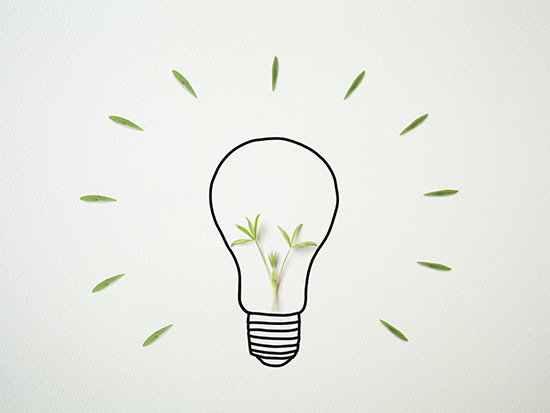 Did you know the average person produces more than 4 pounds of waste each day? According to the United States Environmental Protection Agency, the total generation of municipal solid waste in 2017 was 267.8 million tons, or 4.51 pounds per person per day. Of that total, approximately 67 million tons of MSW were recycled and 27 million composted.
Did you know the average person produces more than 4 pounds of waste each day? According to the United States Environmental Protection Agency, the total generation of municipal solid waste in 2017 was 267.8 million tons, or 4.51 pounds per person per day. Of that total, approximately 67 million tons of MSW were recycled and 27 million composted.
Tim Sullivan, manager of the University of Alabama at Birmingham Facilities Support Services, says waste is considered anything that is currently hitting the waste stream or headed to the landfill.
“Currently, global and local recycling markets are struggling; but we have a strong commitment from our UAB administration supporting recycling,” Sullivan said.
“It is important for us to recycle only items your recycler can accept, and it is important for us to make smart choices,” Sullivan said. “Recycling is the best last choice. First let’s avoid creating a waste problem with smart purchasing choices. You have to ask yourself, ‘Do I really need this product?’ or ‘Is there a better way?’”Sullivan says the crisis is due partly to the natural fluctuation of supply and demand and partly to people trying to recycle non-recyclable materials. When this happens, the entire recycling bin is contaminated and has to be thrown away.
Sullivan suggests that individuals can cut down on the amount of waste they produce by practicing conservation with these nine helpful tips:
- Use electronic mail instead of paper
- Choose products with minimal packaging
- Use reusable cups and bags
- Choose not to use straws
- Buy food products in bulk instead of individually wrapped
- Walk short distances rather than drive
- Utilize public transportation rather than use a private vehicle
- Carpool rather than have one passenger per vehicle
- Host a waste-free event
| WATCH: Tips on what to recycle and the proper way to do so |
“There isn’t a definite way to tell how much waste each household is producing, but these simple actions can assist in cutting down on the products we use and throw away,” Sullivan said.
UAB Sustainability’s Strategic Plan aims to reduce disposal of waste in local landfills and develop the university grounds for ecological stewardship. The department also hosts a Green Events Guide for anyone who wants helpful, practical tips on how to reduce waste from when they are hosting meetings and events. The guide also provides tips on how to publicize the value of reducing all types of waste, including food waste.
The UAB Recycling Center accepts recyclable items from 7-9 a.m. and 4-5:30 p.m. on Mondays and Thursdays.